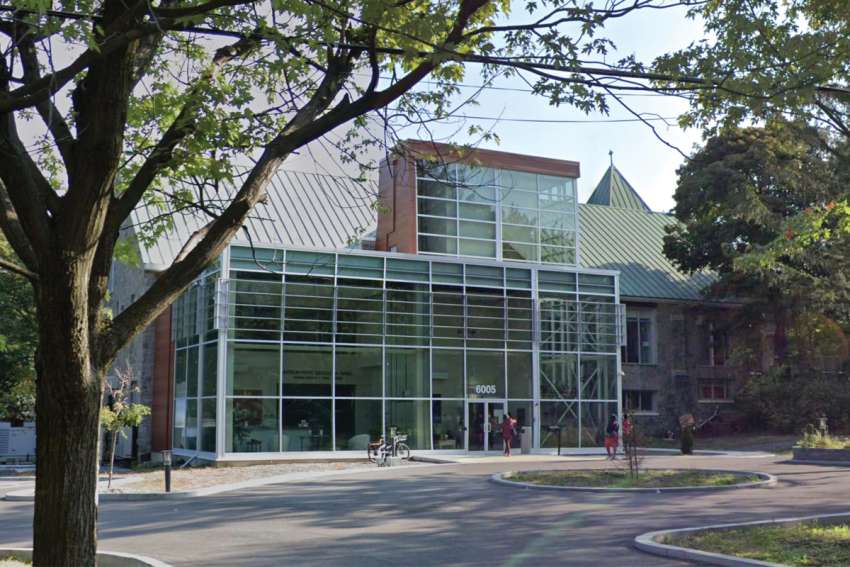In an appeal for judicial review submitted to the Quebec Superior Court on Feb. 5, Lépine asked for an immediate stay of the application of an amendment to the Act respecting End-of-Life Care that requires palliative care hospices to offer Medical Aid in Dying (MAID).
The June 2023 amendment specifies that “no palliative care hospice may exclude medical aid in dying from the care they offer.”
The palliative care centre that Lépine hopes to shield is the St. Raphael Palliative Care Home and Day Centre in Montreal, but the appeal raises larger questions of the future of the collaborative charitable work of faith communities unable to act according to their conscience.
“Keeping the provision in question in force could … have a paralysing effect on all religious groups seeking to get involved in society through voluntary work or philanthropy while respecting their beliefs and convictions,” the appeal argues.
Citing section 2A of the Canadian Charter and section 3 of the Quebec Charter, it asserts that in forcing the practice of MAiD on all hospices, “without regard to their mission and values, the legislative amendments significantly interfere with the exercise of the right to freedom of religion and conscience.”
The appeal further asserts that the practical effect of the amendment is State appropriation of a church building to administer MAiD. Lawyers for Ladner and Gervais representing the Archbishop suggest that it violates sec. 6 of the Quebec Charter, which guarantees the “peaceful enjoyment and free disposition of property.”
The English-speaking parish of St. Raphael the Archangel closed its doors in 2009, but Church and community stakeholders collaborated to develop a future for the property as a 12-bed palliative care residence and Quebec’s first palliative day centre.
The Archdiocese and the board of the newly constituted community organization, Maison St-Raphaël, signed a 75-year lease in 2016 transferring the land and buildings to the use of the centre. The Archdiocese charges a “symbolic annual rent of one dollar.” According to the appeal, the “condition sine qua non” of the emphyteutic lease was that the facility would never administer MAiD.
Lépine told the The Register that he was engaged in this “because the mere fact that the parish came to me and said, we won't exist anymore as a parish, but we want the church to be used in the context of palliative care. So, I said, okay, so it's a good cause.”
He said that the crucial clause of the lease “was an easy thing to ask for because everyone wanted that. That's what people wanted. That's what the parish wanted. It was the desire that the pastor expressed, it was the desire that the original forming committee.”
“It begins as a small gesture for a precise institution. And maybe it can help others because it's not only a matter of palliative care, it's a matter of freedom of conscience. We speak about palliative care and MAiD because it's around those issues that the law is made. But it's really the freedom of conscience, not only for individuals, but also for institutions,” said Lépine.
“That's what we hope to promote. Whoever we are, we need a society where there is a freedom of conscience for people and institutions. It's a promotion of common good. It's good for everyone. There'll be a process, judicial process that will decide, but at least we make our part for promoting the freedom of justice, of religion and conscience.”
The court filing sets out the historical and moral connection between St. Raphael and the Archdiocese of Montreal. No date has been set for a hearing.
The appeal notes that “the Archbishop’s support for the Maison St-Raphaël project was aimed at improving the Montreal community’s access to quality end-of-life care, while reflecting and respecting Catholic beliefs in this area.”
When the hospice opened in 2019, an agreement was also in place with the local health authority that clearly stated St. Raphael did not offer MAiD but specified “the responsibilities of the parties when a patient of Maison St-Raphaël requests this service… and, if necessary, the transfer of the patient to the CIUSSS (Centre intégré de santé et de services sociaux ) for the administration of this procedure.” In other words, the palliative care centre has always had a system in place to ensure that patients who requested MAiD would be transferred “promptly” to a local facility to that end.
In addition, the lawyers stress that St. Raphael is “not a public health institution, but a community organization,” according to the Quebec Health Act and as such is free to “define its orientations, policies and approaches, even if it receives public funding.”
The appeal reveals that at Lépine’s request St. Raphael applied to Quebec’s health minister for an exemption on Sept. 12, 2023. On Nov. 14, Health Minister Sonia Bélanger refused the request, saying that MAiD is “a form of care that is part of the continuum of palliative and end-of-life care, and it is essential that all users who wish this care be able to access it in all settings offering end-of-life care. To this end, no derogation may be authorized.”
The conclusion, according to the filing, is that “the applicants are faced with an insoluble dilemma.”
“Either give up their support for Maison St-Raphaël and thereby abandon a project that bears witness to the faith and commitment of the Catholic community, or allow their property, a former church, to be used to commit what they consider to be morally unacceptable acts.
“The State is thus de facto hijacking the intent of the founders and donors and the mission of the former church, which we are graciously making available to a community organization.”


